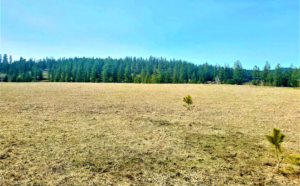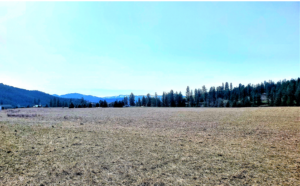Recently, I listened to a sermon by Tim Keller on “A Biblical Perspective on Risk,” and I appreciated the content so much that I decided to write on it. Tim Keller is an American Pastor and Christian Apologist who has authored many books for Christians and anyone looking for God. In this particular sermon, Tim explained the concept of risk and classified risk for better understanding. He then approached the discussion from a Biblical perspective, and I will be doing the same thing in this article.
Before we make the discovery about that specific perspective, first, we will start by defining the word.
The Meaning: What Is Risk?
Risk is defined in very similar ways by many people. To put it simply, it is the chance that the return on an investment made will be lower than what you expected. Once you know the risk, often expressed as a percentage, you can weigh it against the rewards and decide whether or not you would like to continue with an investment.
Two Types of Risks: External versus Internal Risk
When discussing risk related to starting a new venture, there are two types of risks that should be analyzed before making any final decision.
The first is the external risk. It is determined after careful evaluation of the venture – this risk is calculated by running the numbers. For the second one, we have the internal risk. The internal risk here comes from within you and how you feel about pursuing a venture after carefully considering of all the external risks. This internal risk is your inner attitude towards the risk you are about to take. For example, if you have no fear of failure, chances are that your internal attitude towards the risk will be positive. In contrast, having fears or concerns will make you a bit more hesitant.
Now, these two possible states of internal attitude to risk are good in themselves. However, being on the extreme of either can cause a lapse in decision-making. We know that we cannot sail on two rivers at the same time. One must choose on which road to take.
For instance, having no fear or being overconfident makes one less cautious and could result in making the wrong move. On the other hand, being crippled by worry which stems from a fear of failure, makes you unable to take smart risks. For some people, previous failures make them take on too few risks, while for others, it makes them take on bigger ones as they are looking for their big break.
Regardless of the category you fall into, you need to find a way to balance out your fears or overconfidence. A balance between the two will help you make objective decisions about the risk you are about to embark on. This decision boils down to your internal attitude to risk affecting how you perceive the external risk.

History of the Concept of Risk
While it might seem that risk has been an integral part of life forever, it may surprise you that the word risk was not used in the English language until the 1600s. Before that, the concept of chance was strongly influenced by the belief structure of fatalist Greek and classical Roman societies.
According to the Greeks and Romans, the idea of risk simply didn’t exist because they believed in the acceptance of fate, or predestination. In other words, what was going to happen would happen, and all things are inevitable. This, of course, means that there is no point weighing up risks: ultimately, the result has already been pre-determined and you have no control over anything.
After that, the general idea of risk was first brought about through capitalism, as the capitalist society was very different from the ancient one. This was because deism developed around that period (between the 1600s – 1700s), making people less dependent on God supporting them. People began to understand and realize the need to get things done – by themselves. As the belief in predestination shrank, the understanding that they could make decisions brought about the need for people to calculate and manage those decisions. People began to believe themselves accountable for their own growth.
The Difference Between Christianity Today and Fatalism
As Christians, we believe in the sovereignty of God, but in a different way than the Greek and Roman fatalists did. Christianity is of the “despite what we do” belief, whereas fatalism believes in “resigned fate.”
What this means for Christians is that we put in our very best and depend on God to make it work – we plant and water, and He causes them to grow. We know we are to take responsibility, and for every action we take, there will be consequences that will unfold. For the fatalists, however, God’s sovereignty includes predestination, and nothing we do makes a difference in how things develop.
As Christians, we should strike a balance between our responsibility and God’s sovereignty. God is not a puppet master. Instead, He is a loving God who sent His son to die for us that we might be saved.
Personal Note on the Impact of Deism
Deism served an excellent purpose of bringing to the consciousness of many the need to make decisions knowing that there are consequences to them. However, as with all extremities, this led many people to dismiss the need for God. Unlike the black and white expectation that we either need God to spoon-feed us or, don’t need Him at all, we as humans need to understand that we should do as much as we can, while acknowledging that God crowns our efforts.
A Biblical Perspective on Risk
The bible doesn’t expressly talk about risk, which is not surprising, seeing as the concept of risk wasn’t in practice during that time. Despite this, the bible teaches us how to approach new ventures or investments and, as Christian entrepreneurs, guide us on how we access and undertake risk.
To be a smart, savvy, and courageous Christian entrepreneur, there are two things you need to know about: fear and control. Fear and control are mentioned often in the bible and, by understanding them, you will be taking steps in the right direction.
1. Fear
Fear is an emotional state of anxiety caused by either the awareness or the anticipation of a dangerous situation. The bible addresses this emotion many times, but the passage we will be focusing on here is Psalm 3. In Psalm 3, we read of David’s worries about his enemies who were trying to bring him down both physically and psychologically. Like many Christian entrepreneurs today, he had people who poked at his identity, questioning if God was with him (Psalm 3:1-2).
However, from verse 3, we saw a shift in the words of David, and those are what set a foundation for how we are to deal with fear when it threatens to cripple us.
How to Deal with Fear
To effectively deal with fear, we should take steps to handle it healthily and prevent recurrence.
- Admit Your Helplessness – The first thing David did at the beginning of the chapter was acknowledge the fears that were trying to swallow him whole that he could do nothing about. To deal with fear, you have to first admit to yourself that you are afraid and have no control over it.
- Acknowledge God – Relocate Your Security to Him “But you, Lord, are a shield around me, my glory, the One who lifts my head high.” – Psalm 3: 3. This verse guides us to the next step to take while dealing with fear: handing over what worries us to God. In handing over, or relocating our security, we are also acknowledging that we had put them in the wrong place before. Our fear arose because we were resting our security on our own frail abilities. Relocating your security to Him entails realizing during each episode of fear that God’s love for you, His grace, and your identity in Christ are your strongest and most valuable assets.
Why Should I Relocate my Security to God?
When you make your identity in Christ your most valuable asset, your head is held high in God. What others say matters less, regardless of your achievements or failures. This does not mean that caring about your ventures is unimportant, but it is no longer your focal point. When you get to this point of relocating your security, you will find your fear of failure dissipated because your real assets are in God. There is nothing to fear if what you value most will never be affected.
Another major thing that a Christian entrepreneur will achieve through this practice is striking that balance between crippling fear and overconfidence that we discussed earlier. When you relocate your significance to God, you will discover that the fear that once crippled you has drastically reduced. Now, you can make more clear-headed decisions about your venture.
How do I Relocate my Security to Him?
Relocating our security and significance is not as easy as simply deciding to. It takes singing, worship, repentance, prayer, and consciously sticking to it. All of this, of course, is built by being consistent over time.
2. Control
This is the second thing discussed in the bible that should influence how we take risks. James 4: 13-15 reads, “Come now, you who say, ‘Today or tomorrow we will go into such and such a town and spend a year there and trade and make a profit yet you do not know what tomorrow will bring. What is your life? For you are a mist that appears for a little time and then vanishes. Instead, you ought to say, ‘If the Lord wills, we will live and do this or that.’”
This passage reminds us that we have no control over what happens at any point in our life. It reminds us of our insignificance in a world as vast as ours, and this revelation should greatly humble us. Today, our society encourages and even requires us to make plans. The problem is making plans often leads us to making mistakes.
Mistake and Self Overestimation
With planning comes the likelihood of overestimating the knowledge you have. You’ve run the numbers and believe that you can handle taking a risk from your calculations. But, we fail to realize that we don’t know what we don’t know, and there are many possibilities that we never even dreamed could occur.
Does this mean that planning is bad? No, far from it! Make the plans you need to, but always remember that the right circumstance, timing, and opportunities ensure our success, all of which we have no control over.
How to Relinquish Control
The truth is that we have no control to relinquish. So when we talk about relinquishing control, we mean accepting that we have no control and trusting God to fulfill our needs as He is the one who knows all things.
Bottom Line
Fear of failure and wanting to control everything about our ventures are not foreign concepts to us Christians. But if we agree to let God take the reins and pioneer what we do, we would realize the things we do have control over and be wise, courageous, and bold in fulfilling our part. Therefore, I pray that you learn to trust God’s direction for your life and worry less, knowing that He cares for you.








